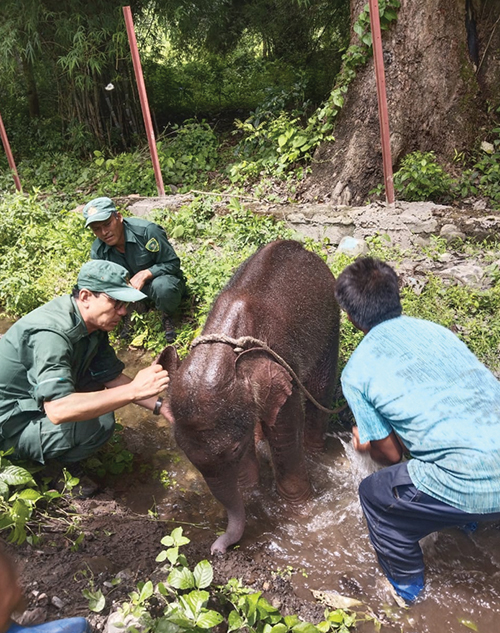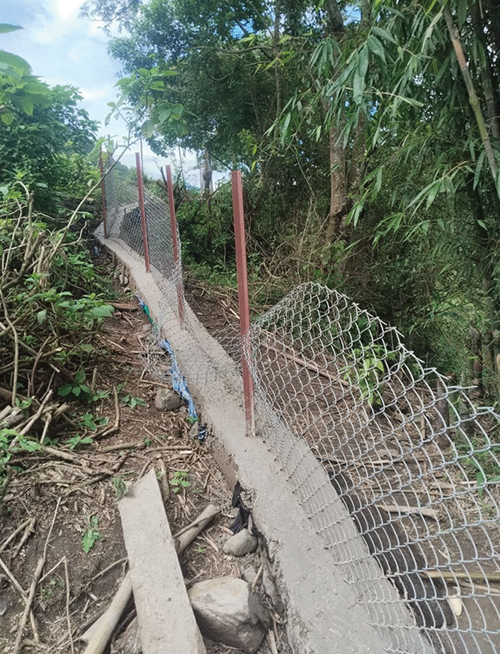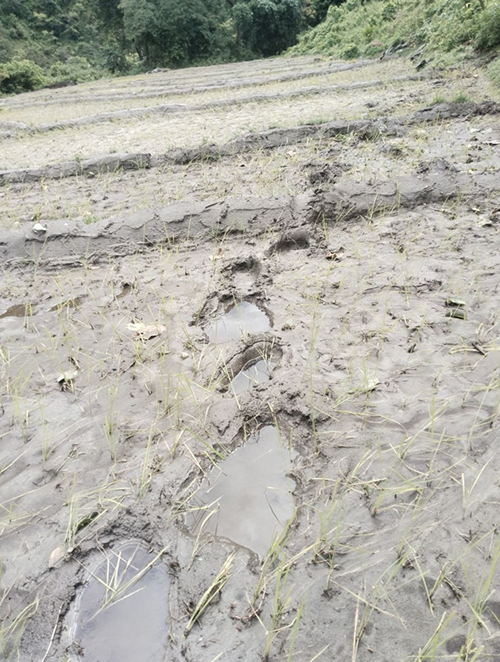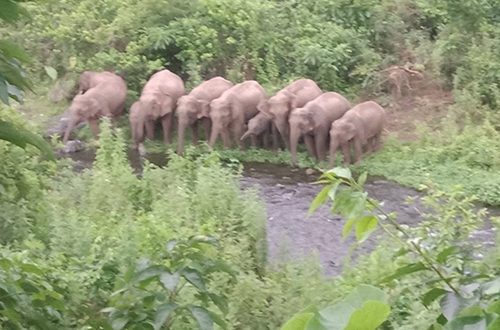Villagers, foresters and gewog officials forced to stay as night guard in nearby jungles
People of Trong gewog under Zhemgang are in disbelief since the frequent visit of the elephants in their fields and even at their residences. The once-a-year visit by the elephants has now turned into a monthly visit in their premises.



Though there has never been harm to humans, as of date, but the frequent visit is of concern. To add to the worry, the elephants in their area are always seen moving in herds ranging from 13-14 numbers including two new calves who were recently birthed. These groups according to the gewog administration of Trong shared has a pattern to move in 5 paths or ways.
Even after being chased from a village, they move to other villages in the forest paths, especially in search of food, water and their needs.
A recent visit by the herd was recorded on 16th and 17th August 2025, during which, shortly after the paddy plantation, they unknowingly destroyed several fields, leaving behind large footprints and broken chain-link fences. The same damage had also occurred in July this year.
Trong gewog Mangmi, Dorji Wangchuk, shared that since the elephants always move during the night time, it is making things difficult to them.
“When we suspect the arrival of elephants, we stay near their familiar paths and light fires in groups, which always helps. These elephant herds usually visit around 5–6 pm. Sometimes, the wait can extend from early evening until the early morning. However, when they arrive suddenly without any signs, the damage, especially to our farms, can be devastating,” Dorji Wangchuk said.
He shared that fortunately there hasn’t been any human casualties, but paddy, maize and other crops including banana plants are eaten and destroyed by the elephants.
There have even been instances of elephants entering homes in Tama village, destroying houses and personal belongings. In one case, the damage was estimated at over Nu 60,000.
A 50-year-old villager, Tshering, said her husband and other men have been patrolling nightly due to the elephants. She added that the situation is becoming increasingly dire compared to past years.
The Mangmi shared that the female elephants with younger calves are usually wild and at times such elephants damage empty houses.
Recently, a male elephant calf (5-month-old) who was washed away by the Manas River was rescued by a team of foresters, gewog officials and villagers. Though the initial decision to drop the calf at a park was made, a animal specialist recommended that the calf be returned to the elephant family in the forest as it would pose danger to the calf to stay independent before the calf turned 1 year, including the chances of the adult elephants intruding into villages in search of the calf.
Residents of Trong shared that when they found the calf, cries of the rest of the elephant herd members could be heard from miles away, and it was a guarantee that they would come in search of their missing calf.
So, the decision to drop it back to the family was wise.
The officials transported the elephant calf in a Bolero pickup truck. An official said that the calf remained calm and cooperative throughout the rescue, and even during drop-off, which made the process much easier.
After this gesture, the elephants have not made any visits in the residential areas of the village.
Residents of Trong Gewog, particularly in Tama-Berti village, say they have learned to co-exist with elephants that frequently visit their fields. With no immediate measures to keep the herds away, villagers now allow elephants to feed on bananas and maize, prioritizing the safety of both people and animals.
Currently, residents believe the elephant herds are residing in the nearby forests of Tama-Berti, a development they consider good news. Despite the panic caused by crop raids and damage to huts and doors, there have been no reported threats to humans, and villagers remain committed to living peacefully with the animals.
With no quick solutions available, locals are taking precautions rather than retaliating. They avoid harming the elephants through threats or poison, fearing that such actions could provoke more dangerous encounters. Villagers remain vigilant, heeding warnings to avoid venturing deep into the forest and to avoid startling the elephants.
“By respecting their space and remaining alert, we have so far avoided any incidents,” a resident said. “Our priority is to protect both the people and the elephants.”
 The Bhutanese Leading the way.
The Bhutanese Leading the way.




